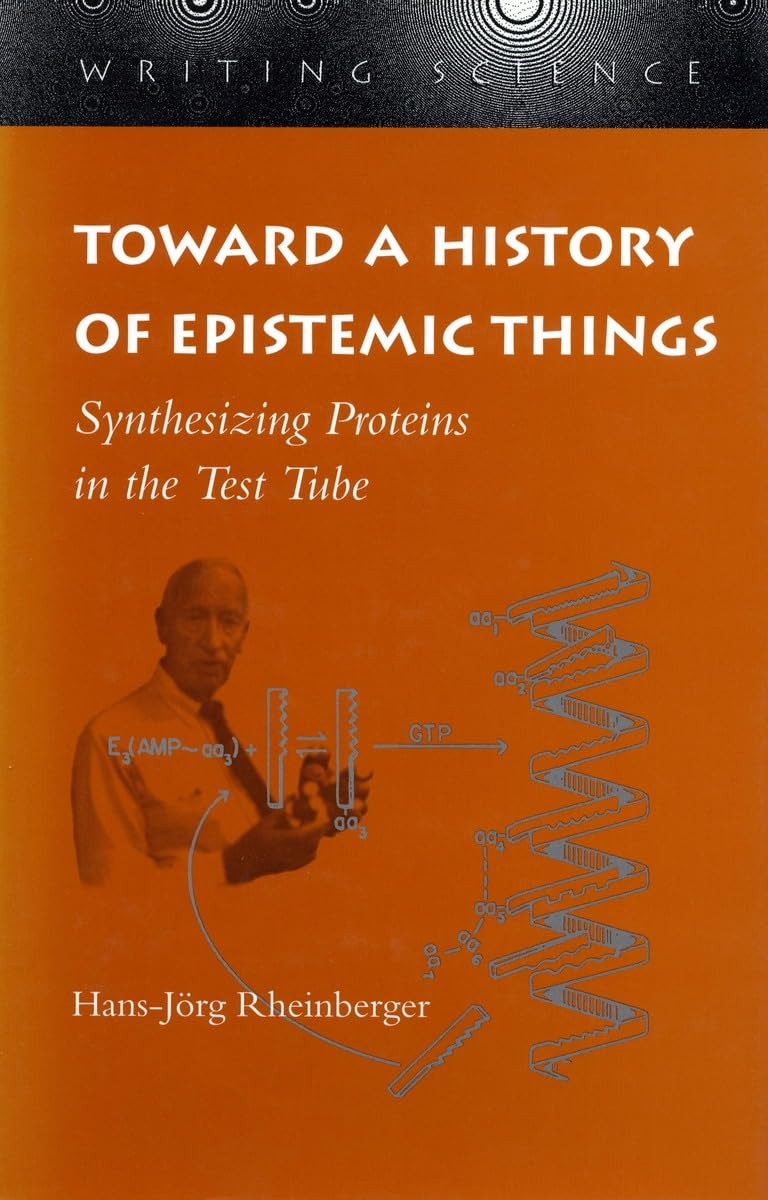
Title

Toward A History Of Epistemic Things: Synthesizing Proteins In The Test Tube (Writing Science),New
Processing time: 1-3 days
US Orders Ships in: 3-5 days
International Orders Ships in: 8-12 days
Return Policy: 15-days return on defective items
In this powerful work of conceptual and analytical originality, the author argues for the primacy of the material arrangements of the laboratory in the dynamics of modern molecular biology. In a postKuhnian move away from the hegemony of theory, he develops a new epistemology of experimentation in which research is treated as a process for producing epistemic things.A central concern of the book is the basic question of how novelty is generated in the empirical sciences. In addressing this question, the author brings French poststructuralist thinkingnotably Jacques Derridas concepts of diffrance and historialityto bear on the construction of epistemic things. Historiographical perspective shifts from the actors minds to their objects of manipulation.These epistemological and historical issues are illuminated in a detailed case study of a particular laboratory, that of the oncologist and biochemist Paul C. Zamecnik and his colleagues, located in a specific settingthe Collis P. Huntington Memorial Hospital of Harvard University at the Massachusetts General Hospital of Boston. The author traces how, between 1945 and 1965, this group developed an experimental system for synthesizing proteins in the test tube that put Zamecniks research team at the forefront of those who led biochemistry into the era of molecular biology.
⚠️ WARNING (California Proposition 65):
This product may contain chemicals known to the State of California to cause cancer, birth defects, or other reproductive harm.
For more information, please visit www.P65Warnings.ca.gov.
- Q: What is the main focus of 'Toward a History of Epistemic Things'? A: The book primarily explores the role of material arrangements in modern molecular biology, emphasizing how laboratory practices contribute to the generation of novelty in empirical sciences.
- Q: Who is the author of this book? A: The author of 'Toward a History of Epistemic Things' is Hans-Jörg Rheinberger, a noted scholar in the field of biochemistry and the philosophy of science.
- Q: What is the publication date of this book? A: The book was published on July 1, 1997.
- Q: What is the book's approach to experimentation? A: The author presents a new epistemology of experimentation, treating research as a process that produces 'epistemic things' rather than solely focusing on theoretical frameworks.
- Q: How many pages does the book contain? A: The book contains a total of 338 pages.
- Q: What is the binding type of this book? A: The book is available in paperback binding.
- Q: Is this book suitable for beginners in biochemistry? A: While the book offers valuable insights into epistemology and laboratory practices, it may be more suited for readers with some background in biochemistry or philosophy of science due to its complex concepts.
- Q: What historical period does the book examine? A: The book examines the historical period from 1945 to 1965, focusing on the development of experimental systems in a specific laboratory setting.
- Q: Does this book include case studies? A: Yes, the book includes a detailed case study of the research conducted by Paul C. Zamecnik and his colleagues at Harvard University.
- Q: What themes are explored in the book? A: The book explores themes such as the generation of novelty in sciences, historiographical perspectives, and the influence of French poststructuralist thought on the understanding of epistemic things.

